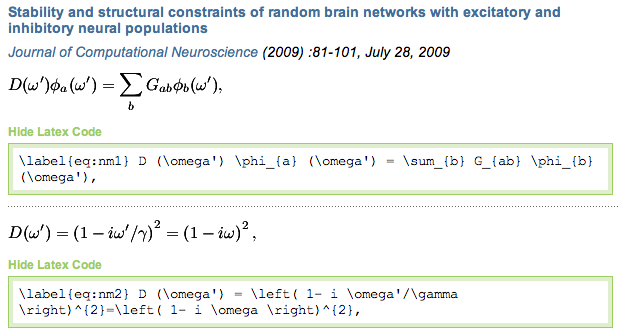LaTeXSearch: 1M snippets in a searchable database
January 24th, 2010 by darioSpringer announced last week the launch of LaTeXSearch.com, a free online service allowing users to search a huge database of LaTeX snippets from Springer journals and publications. This follows the launch of a similar service, a few months ago exposing Springer’s database of scientific images (which suggests a precise strategy on how to build Web services on top of content in their publication database).

LaTeXSearch does what it promises, using similarity algorithms “to normalize and compare LaTeX strings so that, if similar equations are written slightly differently, the outputs are normalized and matched, granting you the broadest possible results set”. The only glitch is that snippets are not cached but generated on the fly, with the annoying result that it can take quite some time to display the rendered version of LaTeX formulas in search results.



